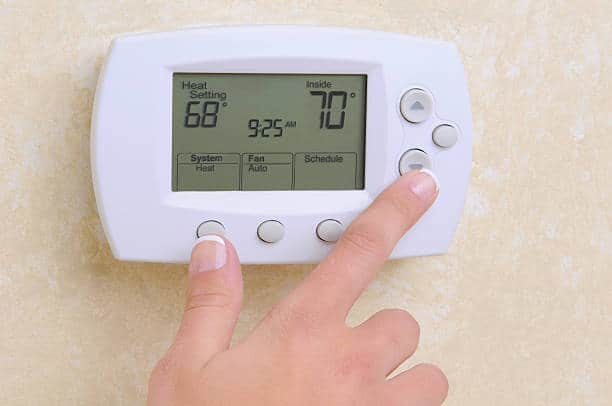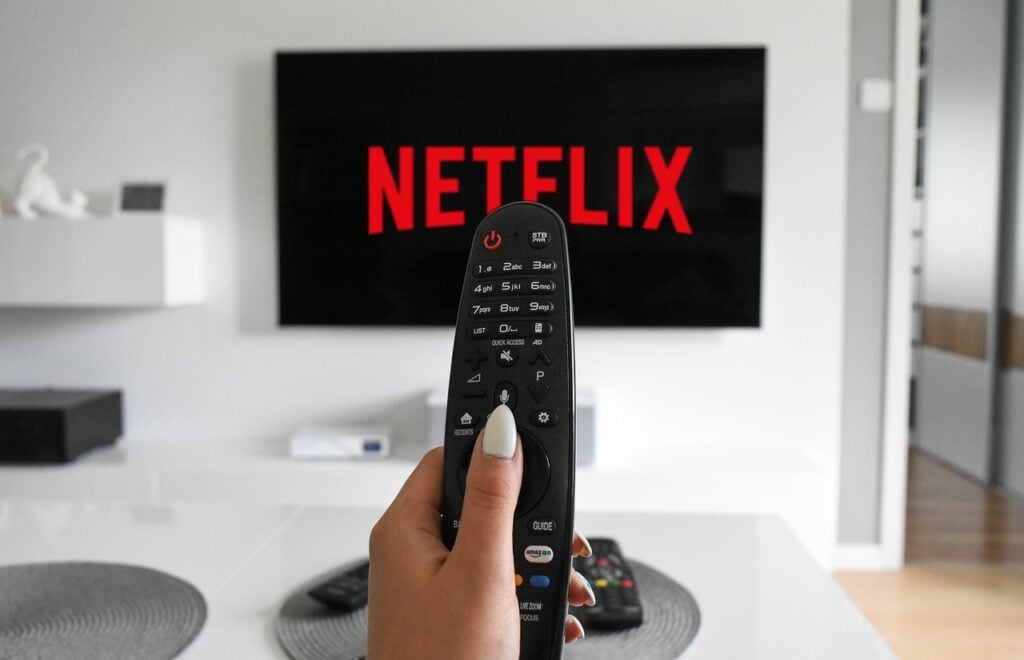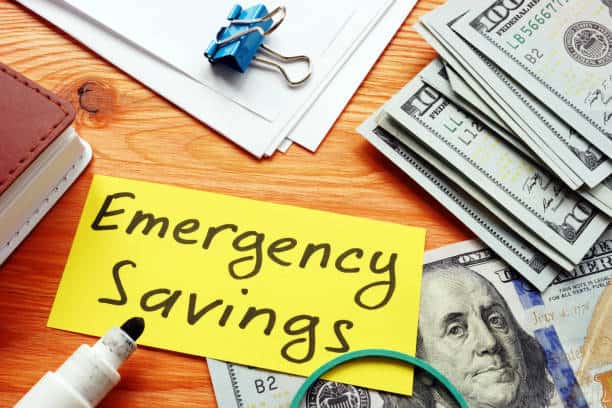
 Image Credit: DepositPhotos
Image Credit: DepositPhotos
Managing money on a tight budget can feel like walking a tightrope, every step requiring precision and care. The fear of unexpected expenses or falling short on bills only adds to the stress, making effective budgeting a crucial skill.
According to studies, 64% of Americans live paycheck to paycheck, often struggling to cover even basic expenses. This widespread issue highlights the need for practical solutions to ensure financial stability and reduce stress in managing daily life.
In this article, we’ll share 21 actionable tips to help you stretch every dollar, covering cutting unnecessary costs to finding creative ways to save. These strategies are designed to help you take control of your finances without sacrificing comfort or quality of life.
What’s your biggest challenge when it comes to saving money? Let us know below, and don’t miss our final tip, it could reshape how you think about budgeting!
Create a Detailed Monthly Budget


Establishing a detailed budget creates the foundation for effective financial management. Begin by identifying all income sources and categorizing expenses into fixed and variable types. This approach allows you to clearly see where your money is going and where changes are needed.
Regularly revisiting your budget ensures it remains accurate and aligns with your financial goals. Unexpected changes, such as job shifts or rising costs, can be accommodated more easily when your budget evolves over time.
Engage your household in the budgeting process for shared accountability and transparency. Collaboration can open up creative ways to save money, like eliminating redundant expenses. When everyone participates, the household works as a team to meet financial goals.
Budgeting Made Simple: Proven Strategies to Make Your Money Work for You
Prioritize Needs Over Wants


Mastering the ability to separate needs from wants is vital for managing finances responsibly. Needs include essentials like rent, utilities, and food, while wants cover non-essential items like entertainment or dining out.
Postpone or avoid unnecessary purchases to direct resources towards savings or debt repayment. Adjusting your mindset to value necessities more highly promotes financial stability. Regularly reevaluating these priorities ensures they align with life changes, like new goals or circumstances.
Earn Free Gift Cards
Swagbucks: Coupons, Paid Online Surveys & Free Gift Cards
Do you want to make money online simply by searching, shopping, surveys, or playing games?
Pros:
- Account creation is free
- Big bonus on sign up
- Many ways to earn free money
- Mobile-friendly rewards site and apps
- Simple to complete tasks
- $10 to sign up
Cons:
- Not exactly passive income
- Redeeming SB points sometimes takes awhile
- It isn’t easy to qualify for all surveys
- Customer service isn’t the greatest (or fastest)

This habit of reevaluating wants fosters a deeper appreciation for necessities and helps maintain a balanced financial approach. Adapting your budget to reflect these shifts ensures your spending stays focused on what truly matters.
Want to Save Thousands? Eliminate These 13 Monthly Expenses Immediately
Leverage Coupons and Sales


Taking advantage of discounts is an excellent way to maximize your spending power. Coupons, loyalty programs, and seasonal sales provide opportunities to save on everyday items. Be it shopping online or in physical stores, these strategies stretch your dollars.
Plan your purchases to coincide with sales and promotions. Stocking up on essentials during these periods reduces long-term costs, freeing up money for other priorities. Designate a space for storing coupons and promotional offers to stay organized and ready to save.
Consistency in using discounts amplifies their financial impact over time. By making it a routine, you’ll develop a habit that contributes significantly to your overall budget.
25 Fees Companies Try To Hide From You And How To Avoid Them


Reduce Utility Bills


According to recent data, the average U.S. household spends around $2,000 a year to power electronics, heat and cool spaces, warm up water, and keep the lights on. Cutting utility expenses can have a substantial effect on your monthly budget.
Simple actions, such as turning off lights when not needed or upgrading to energy-efficient appliances, lead to noticeable savings. Small efforts add up and make a meaningful difference over time.
Investing in tools like smart thermostats or low-flow showerheads can lower usage and expenses. While these upgrades have an initial cost, the long-term savings make them worthwhile.
15 Simple Hacks to Slash Your Electric Bill Quickly And Easily
Use Public Transportation


Reducing transportation expenses starts with choosing cost-effective options. Public transit systems, such as buses and trains, typically cost less than maintaining a personal vehicle. These methods also lower maintenance and parking fees, easing the burden on your budget.
Seek out discounts for frequent riders or monthly passes offered by transit systems. Walking or cycling for short trips eliminates costs altogether while promoting better health. Adopting these habits reduces wear on your vehicle and provides sustainable alternatives.
Small adjustments in transportation choices can lead to significant financial benefits over time. These savings can be redirected to other important areas of your budget.
22 Clever Ways to Save Money You Probably Haven’t Tried Yet!
Opt for Generic Brands


Switching to generic products is a smart way to cut costs without sacrificing quality. Generic brands often match their name-brand counterparts in performance and ingredients but come at a lower price. This simple change can add up to substantial savings over time.
Experiment with generic options for everyday items, such as cleaning supplies or pantry essentials. Many people find these alternatives meet or exceed expectations. Keeping a record of the savings reinforces the habit and shows its positive impact.
Seeing the cumulative effects of choosing generic brands encourages continued effort. Over months, this adjustment strengthens your financial stability and frees resources for other needs.
30 Ways to Save on Prescription Medications
Limit Subscription Services


Subscription costs can creep up and strain your budget unnecessarily. Review all services to identify those you use frequently versus those with little value. Canceling underutilized subscriptions frees up funds for more essential expenses.
Consider sharing subscriptions with family members or friends to split costs. Many services offer plans that allow multiple users, reducing the financial burden for everyone involved. Setting reminders to periodically reassess these services ensures they continue to meet your needs.
Making this evaluation a regular habit keeps your spending under control and aligns your expenses with your priorities. This strategy is an easy way to create extra room in your budget.
20 Lazy Home Habits Costing You More Than You Realize!
Shop Secondhand


Buying secondhand items provides a budget-friendly solution for acquiring quality goods. Thrift stores and resale platforms offer deals on clothing, furniture, and electronics. Often, these items are in excellent condition or even unused, making secondhand shopping a practical option.
Visit thrift stores or check online marketplaces regularly, as inventory changes frequently. Patience and persistence often lead to significant savings and unique finds. These savings also support a sustainable lifestyle, contributing to environmental preservation.
This practice aligns financial and eco-conscious values while meeting your needs affordably. Embracing secondhand shopping is a win for both your wallet and the planet.
Stop Paying Full Price! 27 Smart Things to Buy Second-Hand (With Video)
Cut Back on Entertainment Expenses


Entertainment is another area where costs can spiral. Opting for free or low-cost options, like community events or local parks, provides enjoyable alternatives. These activities can be just as fulfilling as pricier outings.
Host gatherings at home, such as movie nights or potluck dinners, to spend quality time without spending too much. Sharing experiences in this way fosters deeper connections while saving money.
Tracking entertainment expenses ensures you stay within your budget while enjoying your leisure time. Awareness of your spending keeps enjoyment in balance with financial responsibility.
When Saving Money Goes Wrong: 12 Frugal Habits That End Up Costing More
Establish an Emergency Fund


An emergency fund serves as a crucial financial cushion against unexpected expenses. Life often presents sudden challenges, such as medical bills or car repairs, which can disrupt even the most organized budgets. Building this reserve reduces reliance on credit, helping you maintain stability during tough times.
Starting small makes the goal feel manageable. Set an initial target of a few hundred dollars and increase it gradually. Automating your savings ensures consistent contributions, as setting aside a fixed amount each month turns saving into a routine.
Use this fund exclusively for emergencies to preserve its purpose. Staying disciplined means it’s available when genuinely needed, offering peace of mind and long-term security. This financial safety net protects you from falling into debt during unforeseen circumstances.
🙋♀️If you like what you are reading, then click like and subscribe to my newsletter. We share tips to waste less time and money.
Lower Debt Payments Strategically


Debt repayment can consume a large share of your income, making it essential to tackle it wisely. High-interest debts should be prioritized first, as reducing these balances significantly lowers your overall costs. This approach minimizes financial strain and speeds up your journey to becoming debt-free.
Explore options like consolidating or refinancing loans to secure better interest rates. Reduced rates translate to more affordable monthly payments, freeing up money for other priorities. Careful planning and consistent efforts make this process achievable.
Celebrate milestones as you chip away at your debts. Small victories, such as clearing a credit card balance, boost motivation. Recognizing progress keeps you focused on reaching your financial independence goals.
Straightforward Ways to Get Out of Debt
Practice DIY Solutions


Taking a do-it-yourself approach can save significant money on projects and everyday tasks. Repairs, home improvements, or handmade gifts offer opportunities to cut costs. Online resources provide accessible tutorials for learning new skills and building your confidence.
Begin with manageable projects that align with your abilities. Completing simple tasks successfully encourages you to tackle more challenging ones. Along the way, you might get to know hidden talents or hobbies that bring joy.
Balance DIY efforts by knowing when to seek professional help. For complex tasks, investing in expertise prevents costly mistakes. This thoughtful approach maximizes savings while maintaining quality outcomes.
Before You DIY: 20 Things Every Homeowner Must Know First
Set Financial Goals


Setting clear financial goals offers a roadmap to guide your spending and saving habits. Define both short-term objectives, like funding a vacation, and long-term aspirations, such as saving for retirement. Specific goals focus your efforts and ensure consistent progress.
Write down these goals to solidify your commitment. Revisiting them regularly strengthens your determination and allows you to track achievements. This practice turns abstract desires into concrete milestones that inspire persistence.
Celebrate successes to reinforce positive habits. Acknowledging accomplishments, be it large or small, keeps you motivated for future challenges. Building this cycle of progress cultivates lasting financial discipline.
Finance Expert Shares 17 Financial Traps You Should Avoid After Turning 50
Embrace Minimalism


Adopting minimalism simplifies your lifestyle and reduces unnecessary spending. Focusing on quality over quantity helps you appreciate each purchase, ensuring your money goes toward meaningful items. This mindset brings clarity and satisfaction, fostering intentional living.
Decluttering your home reveals items you no longer need. Selling or donating these creates extra space and funds while promoting gratitude for what you own. Regularly reassessing your possessions helps maintain this balanced approach.
Minimalism aligns spending with personal values, minimizing impulsive purchases. By concentrating on essentials, you prioritize what truly matters. Living with less often leads to unexpected joy and freedom.
Turn Clutter into Cash: 21 Household Items You Can Easily Sell
Buy in Bulk Wisely


Buying in bulk can lead to substantial savings when approached thoughtfully. Concentrate on non-perishable items and household staples that you frequently use. This strategy ensures you maximize value while avoiding waste.
Compare unit prices to ensure bulk purchases truly save money. Some items may seem cheaper at first glance but don’t always deliver long-term benefits. Planning ahead helps you make informed decisions that stretch your budget.
Store bulk items carefully to maintain their quality. Airtight containers or designated storage areas prevent spoilage, protecting your investment. These steps make bulk buying both practical and cost-effective.
The Art of Frugal Food Shopping: How To Save On Groceries
Cancel Automatic Renewals


Automatic renewals often lead to unnoticed charges for services you no longer use. Reviewing your subscriptions regularly ensures they continue to provide value. By managing renewals proactively, you avoid unnecessary expenses.
Set calendar reminders to reassess subscriptions before their renewal dates. This habit lets you determine if they still serve your needs. Only keeping services that actively enhance your life keeps your budget on track.
Check your bank statements for hidden or forgotten renewals. Identifying and addressing these immediately safeguards your finances. Staying vigilant prevents small, recurring costs from adding up over time.
22 Bills You Should Actually Avoid Putting on Autopay
Cook at Home Instead of Eating Out


According to recent studies, home-cooked dinners were found to be connected to healthier eating habits that followed dietary guidelines more closely, all without a significant rise in food spending.
Preparing meals at home is a reliable strategy for reducing food-related expenses. Eating out frequently incurs extra costs, including tips and convenience fees, which can quickly add up. Planning meals in advance can save hundreds of dollars monthly while providing healthier options.
Choose recipes that use affordable ingredients, and consider buying in bulk to further lower costs. Versatile ingredients help reduce waste and stretch your budget even further. Meal preparation becomes a family activity, making cooking an enjoyable shared experience.
Affordable Yet Delicious: 25 Healthy Meals Worth Trying
Swap Services or Skills


Bartering services or skills can save money while strengthening community ties. Exchanging what you excel at, such as tutoring or home repairs, for something you need fosters mutual benefit. This practice enhances relationships and supports financial health.
Identify skills or resources you can offer. Cooking, graphic design, or handyman abilities often hold value within your network. Approaching swaps with clear communication ensures both parties feel satisfied.
Discuss expectations openly to prevent misunderstandings. Strong communication builds trust, paving the way for future collaborations. This exchange system enriches your budget and connections simultaneously.
🙋♀️If you like what you are reading, then click like and subscribe to my newsletter. We share tips to waste less time and money.
Focus on Energy Efficiency


Improving energy efficiency cuts utility bills and supports environmental sustainability. Replacing traditional bulbs with LEDs or compact fluorescents saves money in the long term. Small changes in energy habits accumulate into significant financial benefits.
Unplug electronics not in use to minimize wasted electricity. Adjusting daily routines, like turning off unused appliances, reduces phantom power consumption. These conscious efforts make a noticeable impact.
Seal drafts around windows and doors to maintain indoor temperatures efficiently. Investments in insulation lower heating and cooling expenses, yielding ongoing savings. Energy-efficient practices contribute to a healthier planet and a balanced budget.
5 Tips To Buy Your HVAC Filter Online
Practice Delayed Gratification


Practicing delayed gratification curbs impulsive spending and promotes mindful financial decisions. Before making non-essential purchases, wait a few days to assess their importance. This pause often clarifies if the item truly adds value to your life.
Keep a list of desired items and revisit it after a week or longer. In many cases, the initial excitement fades, saving you money. Building this habit enhances awareness of your priorities and reinforces better spending habits.
Reward patience by allocating funds to meaningful achievements, such as a vacation or major purchase. Celebrating thoughtful decisions strengthens discipline and ensures lasting satisfaction.
28 Brilliant Ways to Set Your Finances Up for Success
Seek Free Entertainment Options


Finding free or low-cost entertainment enriches your life without straining your budget. Local parks, community festivals, and free museum days provide enjoyable experiences. These options allow you to stay active and engaged without extra expenses.
Check event calendars or websites to plan outings aligned with your interests. Staying informed ensures you take advantage of opportunities to explore your community. Participating in local events deepens connections with neighbors.
Host group activities like game nights or potluck dinners at home. Sharing these moments fosters stronger relationships and creates lasting memories. Free entertainment combines fun with financial mindfulness.
Get Outside! 28 Fun and Cheap Outdoor Ideas for the Whole Family
Simple Steps for Smarter Spending


Effective budgeting is not about deprivation; it’s about aligning your spending with your values and goals. By implementing the strategies outlined in this article, you can create a financial plan that feels manageable and sustainable.
Remember, progress is about consistency, not perfection. Celebrate every milestone, no matter how small, and keep refining your approach as your financial situation evolves.
With dedication and smart choices, you’ll achieve greater control over your finances and enjoy the peace of mind that comes with it.
🙋♀️If you like what you just read, then subscribe to my newsletter and follow us on YouTube.👈
AI was used for light editing, formatting, and readability. But a human (me!) wrote and edited this.



